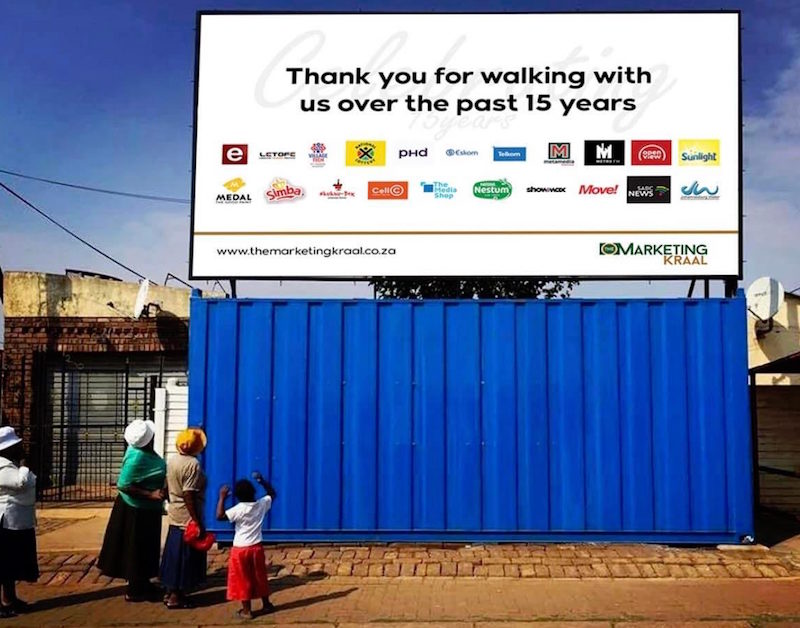Twenty-eight years since the advent of democracy… should there still be advertisements dedicated to the black townships only? If that is still the case, does it mean transformation has failed?
The answer to whether there should still be advertisements dedicated to the black townships only is a ‘yes’. Townships remain viable and exciting markets for a variety of products and services. The answer to whether this means transformation has failed depends on how one views transformation.
Homogeneity, distinctiveness and LSMs
Here are the reasons why. According to the theory of market segmentation, marketers are required to cater for homogeneity, that common need within a segment, and distinctiveness, or what makes a segment unique from other groups of consumers, and tailor product offerings and branding in a way that is attractive to them.
Marketers also use research tools such as Living Standards Measure (LSM) and Socio-Economic Measures (SEMs), to classify standard of living and disposable income.
For the distribution of consumer products and services, the tools divide the population of each city, town or village into target groups based on how people live.
The term ‘township’ traditionally refers to the often underdeveloped racially segregated urban areas that from the late 19th century until the end of apartheid were reserved for non-whites. Some of the biggest townships in South Africa include Soweto, Tembisa, Soshanguve, Umlazi, KwaMashu and Khayelitsha to name just a few.
Apartheid spatial planning
All townships were the result of apartheid spatial planning which created residential segregation and which remains difficult to break down. Due to the legacy of spatial injustice, socioeconomic exclusion still characterises contemporary towns and cities today.
As a result of apartheid spatial planning, transformation remains a long-winded journey. Transformation is on-going, although at very different rates and often taking different forms through urbanisation.
Almost half of South Africa’s urban population lives in townships and informal settlements, according to the 2021 South African Township Marketing Report.
Although unemployment and poverty remain rife in many townships one should not underestimate the buying power of this market as it represents hundreds of billions rands in spending power.
With the township economy estimated at more than R300 billion nationally, many brands that were traditionally targeted at the so-called suburban market are now moving into the townships.
Poor townships
The biggest township in South Africa, with over two million residents, Soweto, has a world-class shopping mall, a world-class Soccer stadium, a historic tourism precinct, one of the biggest hospitals in Africa and an advanced network of transport infrastructure. However the maintenance of this infrastructure remains a challenge due to rampant corruption. There are many other townships that enjoy the above-mentioned facilities.
But many parts of Soweto still rank among the poorest in Johannesburg although individual townships within Soweto tend to have a mix of wealthier and poorer residents.
Communication messages
A lot of research has been conducted by marketers and advertisers to better understand the consumer dynamics in the townships but is the information gathered good enough to assist marketers in making well informed decisions to tailor make their communication messages to this market?
For brands exposure, brand managers, media strategists and media planners always need to critically review these questions:
- Are there still products and services (brands) that are still consumed only in the townships?
- Are there still advertising media channels that are specific only to the township market?
- Should media planners and strategists still recommend communication strategies that are tailor made for the township market?
- Is there still something called a township brand?
- With big supermarket retailers having moved into townships, will township spaza shops be sustainable in the future?
As Seth Godin, an American entrepreneur, best-selling author said, “Don’t find customers for your product. Find products for your customers”.
Geographically and socio-politically, the township market still exists and will continue to exist for years to come.

Lebona Moleli is founder of The Marketing Kraal, an out-of-home advertising and marketing services company based in Johannesburg.














